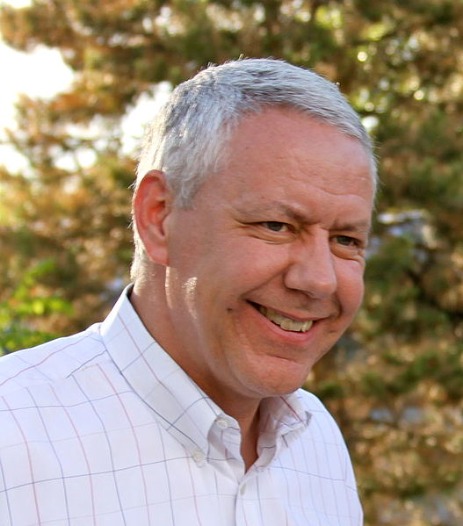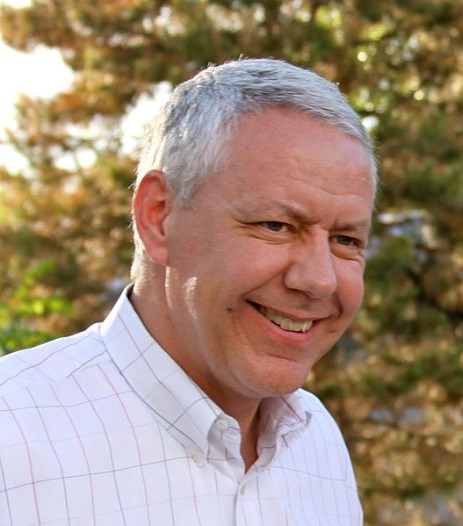 Climate skeptic and Senate candidate Ken Buck.Photo: WikipediaCross-posted from the Wonk Room.
Climate skeptic and Senate candidate Ken Buck.Photo: WikipediaCross-posted from the Wonk Room.
Colorado’s climate scientists — among the world’s leaders in the field — have sharply dismissed the assertions made by the state’s Republican candidate for the U.S. Senate that global warming is a “hoax.” Colorado is a hub of American climate science, home to the National Center for Atmospheric Research, the National Renewable Energy Laboratory, and the Natural Resource Ecology Laboratory. On Thursday, Interior Secretary Ken Salazar announced Colorado State University would house the North Central Climate Science Center, leading a consortium of the University of Colorado, Colorado School of Mines, University of Nebraska-Lincoln, University of Wyoming, Montana State University, University of Montana, Kansas State University, and Iowa State University. Nevertheless, Ken Buck, the Republican candidate for Senate in Colorado, is a radical denier of the science of global warming, campaigning with Sen. Jim Inhofe (R-Okla.) this week:
Sen. Inhofe was the first person to stand up and say this global warming is the greatest hoax that has been perpetrated. The evidence just keeps supporting his view, and more and more people’s view, of what’s going on.
Colorado’s climatologists have responded to Buck, en force. In a press conference hastily arranged by the League of Conservation Voters on Friday, Colorado State University climatologist Scott Denning blasted the anti-science position of Buck, Inhofe, and the like:
There’s really no question at all that CO2 molecules emit heat. It seems like the onus is on them to explain how you can add heat to the surface without warming it up. The basic science of the effect of human-produced CO2 on climate change is 150 years old. It was first measured in 1863. The first estimates of the effect were published in 1896. It piles up and the more stuff you put up there, the more heat you’re going to get. [Emphasis mine.]
In an exclusive email interview with the Wonk Room, Denning’s colleague Dennis Ojima, chair of Colorado State’s Natural Resource Ecology Laboratory and a senior scholar with the Heinz Center, explained that “there is no hoax”:
Quite simply, there is no hoax in studying climate change. It is an important research concern, the same as studying cancer or the economic growth. There is no controversy about the role human actions have made to alter the climate system through the emissions of greenhouse gases over the past 150 years. The fundamental physics associated with the impact of this change in atmospheric concentrations of these gases is not disputed. The manner in which these gases react in the atmosphere is one of the fundamental properties of the climate system. The science at the fundamental level related to greenhouse gases and climate are as solid and as important as the finding that germs are responsible for illnesses and that there are specific strategies to reduce germs in the environment we live in.
“Climate science is not at all a hoax,” climatologist Caspar M. Ammann, a senior scientist at the National Center for Atmospheric Research, told the Wonk Room. In fact, when Ammann heard comments by Buck several months ago on Colorado Public Radio questioning the science of climate change, Dr. Ammann contacted the Buck campaign, offering to explain “why we are sure most of the warming in the last thirty to forty years is human made.”
Ammann received no response from Ken Buck.
In the interview, Ammann emphasized how severe the changes to the global climate will be if greenhouse pollution is not curtailed:
The magnitude of temperature change will be comparable to interglacial periods, when New York City and the Upper Midwest were covered with an ice sheet, about 5-6 C degrees of temperature change. If we keep going with our emissions, we could get that temperature change in a hundred years. We expect 4 C and it could be more by the end of the century, about five times as much warming as we’ve already experienced. The magnitude, even on a geologic perspective, is a substantial change, far larger than anything human civilization has ever seen.
“It’s very likely it’s disruptive to anything we’re doing and take for granted at the moment,” Ammann cautioned.
And yet, it seems that because the response to this civilizational threat requires some form of governmental regulation, Buck’s ideology does not permit him to accept that the problem even exists.



